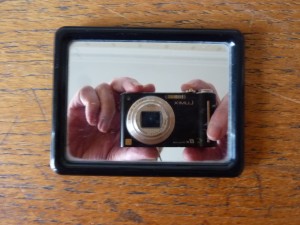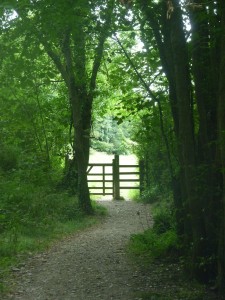The day was bright and the school, inside, looked fresh and clean with several new classrooms and corridors added from last year. Four little scenes remain in my mind from the day.
A storytelling day: four memories
 Most striking was the boy that came out front to describe his visualisation from the story I’d just told his class. It was the story (recounted here last week) where Kaa the Thunderbird expresses his jealous anger for Earth Mother Nokomis whom he believes is more loved than him. What I won’t forget is this boy’s conviction as he painted his word pictures of Kaa and Nokomis at the beginning of the story. I could see he really had seen them, especially when he described Kaa with his strong claws gripping the edge of the mountains and his ‘electric wings’ outspread (and then as he quietly added, turning to me, ‘you know, the electricity that comes from them’).
Most striking was the boy that came out front to describe his visualisation from the story I’d just told his class. It was the story (recounted here last week) where Kaa the Thunderbird expresses his jealous anger for Earth Mother Nokomis whom he believes is more loved than him. What I won’t forget is this boy’s conviction as he painted his word pictures of Kaa and Nokomis at the beginning of the story. I could see he really had seen them, especially when he described Kaa with his strong claws gripping the edge of the mountains and his ‘electric wings’ outspread (and then as he quietly added, turning to me, ‘you know, the electricity that comes from them’).
Funniest was the response of the oldest class when I wondered if any of them remembered my visit last year. All over the room there was nodding assent as one girl spoke out, ‘Is it you who told us that story of the glass eye?’ Ah yes, I thought, I’m not surprised they’ve remembered that one. (It’s the gruesome story included in my posting for February 13, 2016).
Most thought-provoking was the boy who, as his class was coming into the hall, was described to me by a member of staff as someone who is always causing trouble and who simply cannot concentrate. This boy made at least four sensible contributions to questions I asked and he listened throughout.
Most dramatic was the moment when, on the first of the two sessions in which I told The Great Rain, all the pots of daffodils ranged on the window ledges behind me landed with a whoosh and a clatter on the wooden floor, pots and flowers and water and all. ‘Whoo!’ was the response from all in the room and not just because of what had happened but because of its timing. To introduce the story, I’d led the children in making rain with clicking fingers and tapping hands, and by now I was describing the storm that was brewing as Kaa’s rage mounted to the point of exploding. The strong gust of wind that blew those daffodils over must have been fully aware of where the story had got to!
Of course, after such a day in a school, the storyteller thinks back. Did I choose the right stories? Can I judge their effect on the children? Will anything have been remembered by the children or their teachers? And what kind of difference would I like to have made?
As it happens, thinking those thoughts from Monday, I feel conscious of what is perhaps a new aspiration that comes from the totally different kind of day I experienced this Wednesday when I had my second cataract operation.
A hospital day: a lasting effect
 The eye surgeon on Wednesday was hugely impressive in a very quiet and straightforward way. He introduced himself clearly and with no sense of self-importance. When I was lying down ready, he told me quite clearly what he wanted me to do but also said that, if there was anything different that was needed as he proceeded, he would tell me and also that if I needed anything, such as to move, I could say so to him.
The eye surgeon on Wednesday was hugely impressive in a very quiet and straightforward way. He introduced himself clearly and with no sense of self-importance. When I was lying down ready, he told me quite clearly what he wanted me to do but also said that, if there was anything different that was needed as he proceeded, he would tell me and also that if I needed anything, such as to move, I could say so to him.
During the operation, he told me from time to time, quietly, simply and very briefly, what he was going to be doing next. At some point, he said we were now about half way through. And on several occasions, he said, ‘You are a wonderful patient’. I’m sure he says the same thing to all his patients but I found it wonderfully reassuring.
But the thing that affected me most is that, as I sat up when the operation was over, he put out his hand to help me up onto my feet and then, instead of handing me over to a nurse, himself led me out of the operating room and all the way to the waiting room. It was only a short walk. But the experience of him doing that affected me greatly both at the time and since. What a humility of approach, what a kindness.
And what a difference it has made. Following the quiet simplicity of that surgeon’s approach, the particular kindness of that hand is something I will never forget. It helped me back into the day and it has helped me see quite clearly the kind of path I’d like my storytelling to follow.
PS: My camera takes snapshots and I hope can represent the sort of snapshots you get from a storytelling day. Stepping stones making a path into a wood can, I hope, represent my idea of a storytelling path that I’d like to follow.
 The rag-and-bone man regularly came round the streets of Fishguard where I grew up. We kids would be playing Jacks on the front doorstep or What’s the Time, Mister Wolf? round on Victoria Avenue and we’d hear the rumble of his cart, look up and see his tired-looking horse and hear his echoing cry as he went on up the street. ‘Any old rags?’
The rag-and-bone man regularly came round the streets of Fishguard where I grew up. We kids would be playing Jacks on the front doorstep or What’s the Time, Mister Wolf? round on Victoria Avenue and we’d hear the rumble of his cart, look up and see his tired-looking horse and hear his echoing cry as he went on up the street. ‘Any old rags?’








